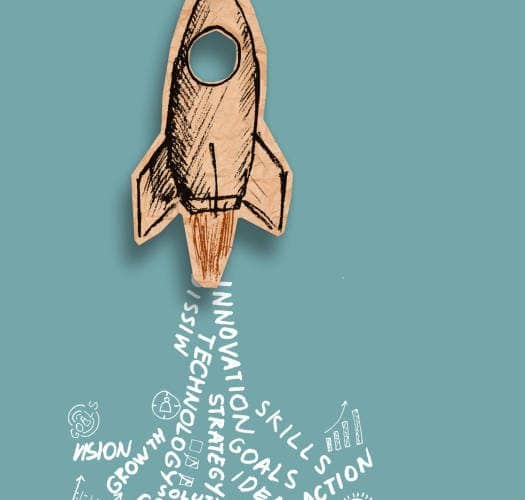When making a good resume, it’s important to list your skills and accomplishments clearly and concisely. In the present employment market, employers look for candidates with several good skills that will help them succeed in their positions.
It’s important to know what skills employers are looking for and how to put them on your resume in the best way. You can show potential employers your value and raise your chances of getting the job of your dreams by emphasizing these talents on your resume.
We will list vital skills below to help you stand out to prospective employers in 2023.
What are some good skills to have on a resume?
What makes a skill good for a resume? A good skill is relevant to the job you’re applying for, demonstrates your expertise and experience, and adds value to the employer.
21 GOOD SKILLS TO PUT ON A RESUME
#1. Communication Skills
The capacity to successfully communicate information and thoughts to people.
#2. Leadership Abilities
The capacity to lead and inspire a group toward a common objective.
#3. Time Management
The capacity to organize work according to the importance and efficiently use time.
#4. Problem-solving Abilities
The capacity to assess a circumstance and develop workable solutions.
#5. Technical Proficiency
Expertise with a variety of programs and tools.
#6. Creativity
The capacity to think creatively and generate original concepts.
#7. Organizational Skills
Ability to manage schedules, paperwork, and information with organization.
#8. Writing Skills
The capacity for clear and effective writing.
#9. Interpersonal Skills
The capacity to get along with people and establish bonds.
#10. Adaptability
This is the capacity to change with circumstances and cope with ambiguity.
#11. Critical Thinking
The capacity to assess data and information in order to draw conclusions.
#12. Project Management
The capacity to organize, carry out and manage projects.
#13. Sales Skills
The ability to convince and influence people to act is a sales skill.
#14. Teamwork
The capacity to collaborate successfully with others to achieve a common objective.
#15. Customer Service
The capacity to offer clients exceptional service and assistance.
#16. Analytical Skills
Ability to gather and evaluate facts in order to draw conclusions through analysis.
#17. Public Speaking
The capacity to produce compelling speeches and presentations in public.
#18. Multitasking
The capacity to manage several tasks at once and prioritize them.
#19. Marketing Expertise
The capacity to successfully market goods or services.
#20. Attention to Details
Identifying and correcting minor faults and blunders require attention to detail.
#21. Financial Management
Financial management includes knowledge and expertise in budget management, financial statement analysis, and financial decision-making
What are the Seven Elements of a Resume?
Instead of emphasizing your professional experience, a skills-based resume concentrates on your accomplishments and skills. The following seven items make up a skills-based resume:
#1. Heading
Your name, contact information, and title as a professional should all be included in the heading, which is the first section of your resume. The job title you’re seeking or the title that best sums up your qualifications should be listed as your professional title.
#2. Objective assertion
The objective assertion at the beginning of your resume briefly summarizes your professional objectives and how they relate to the job you’re looking for. It should reflect your excitement for the role and be customized to the particular job you’re looking for.
#3. List of skills
This section’s qualifications summary should outline your top skills for the job. You should highlight your strengths and provide examples of when you used them. Skill-based resumes emphasize skills over employment experience, so this part is crucial.
#4. Work Experience
This section should list your previous jobs, companies, and dates. Briefly describe your duties and accomplishments for each role. Emphasize any skills you gained at each position.
#5. Education
This part should have information about your education, such as the degrees you have, the schools you went to, and the dates you graduated. Provide any relevant coursework or academic accomplishments as well.
#6. Awards and certifications
Include any credentials or honors you have received in this section. These can be especially crucial for some sectors, like healthcare or education.
#7. References
In this part, you should list the names and contact details of people who can attest to your professionalism. Choose references who know you well and can speak to your skills and experience. Prior to placing their details on your resume, it’s necessary to obtain their consent.
What are the Six Key Skills?
The six key skills that are essential for success in any profession are:
#1. Communication skills
Employers value people with good communication skills because they are important in every job. Active listening and being able to give information in a short, clear way are all important parts of good communication.
Building relationships, preventing misunderstandings, and ensuring that everyone is on the same page are all made possible by effective communication.
#2. Leadership Abilities
Whether or not you have a formal leadership role, strong leadership abilities are crucial for success in any field.
Effective delegation of work, decision-making that benefits the team or company as a whole, and the capacity to inspire and motivate others are all qualities of good leaders.
#3. Critical Thinking Skills
This includes looking at information, evaluating arguments, and coming to good conclusions based on logic and facts.
A good critical thinker can spot assumptions, compare different points of view, and use logic and facts to solve problems and make decisions.
Success in a wide range of professions, including law, business, and healthcare, depends on critical thinking.
#4. Problem-solving Skills
This includes identifying problems, coming up with and trying solutions, and judging how well those solutions work.
Good problem-solvers can think of new ways to solve hard problems by using their imagination, collaborating with others, and changing their strategy as necessary.
#5. Time Management Skills
This includes prioritizing projects, handling your workload efficiently, and meeting deadlines. Furthermore, good time managers are able to delegate or get rid of less important tasks so they can focus on the most important ones.
This is because they are able to put tasks in order of importance. Also, they are capable of properly managing their time and avoiding procrastination.
#6. Adaptability Skills
Skills for adaptability include the capacity to change course as necessary and perform well under a range of conditions. Being adaptable means having an open mind and being eager to learn new things.
Adaptability is crucial in today’s fast-paced, continuously-evolving workplace, where new technology and working methods are continually emerging. You can negotiate unforeseen challenges and opportunities by being adaptive.
What is the Most Essential Skill?
The most essential skill that every employer looks for is communication skills. Effective communication is critical to building relationships, understanding the needs of clients, and resolving conflicts.
Furthermore, it involves listening, speaking, and writing skills and the ability to convey information clearly and concisely.
What are the Three Life Skills?
There are skills that are necessary for success in both the personal and professional spheres. The top three life skills that are essential for success in any area of life are:
#1. Personal management skills
These are the skills you need to be able to take care of yourself well and efficiently. People who are good at managing themselves can set goals they can reach and devise a plan to do so. Additionally, they know how to use their time well, which makes them more productive and helps them meet their deadlines.
#2. Interpersonal Skills
These are the skills needed to make and keep relationships with other people. These abilities include empathy, attentive listening, and respect for others. They are crucial for resolving disputes and cooperating with one another in a team setting. Building successful relationships with family, friends, and coworkers requires excellent interpersonal skills.
#3. Critical thinking Skills
Critical thinkers can look at information objectively, pick out problems, and use data and evidence to come to conclusions. They can anticipate problems and find effective solutions. These skills lead to personal and professional success.
What is a Skill Example?
A skill is an ability to do a task or activity well that you’ve learned through knowledge, practice, and experience. These are a few examples of skills:
Computer skills: the capacity to use computer hardware and software to carry out activities like word processing, spreadsheet administration, or graphic design.
Analytical skills: the capacity to gather and evaluate data, interpret findings, and reach conclusions
Teamwork skills: the capacity to work well as a team, communicate clearly, and cooperate with others in order to achieve a common goal.
Organizational skills: planning and prioritizing work, managing resources, and maintaining organization.
These are only a handful of the numerous skills that people might learn and emphasize in their CVs or job application.
What are the Five Intellectual Skills?
The following five intellectual skills are crucial for success in any field:
Logical reasoning is the ability to reason and draw conclusions from facts, data, and evidence. It entails finding patterns, coming to conclusions, and connecting concepts logically.
Creative thinking is the capacity to think beyond the box, produce fresh concepts, and come up with original solutions to issues. It calls for creativity, curiosity, and a readiness to take chances.
The rationality of thought is the ability to break down lots of information into smaller pieces, find connections and patterns, and come to conclusions that are backed up by facts.
Problem solving is recognizing, assessing, and effectively resolving difficulties. In order to choose the optimal course of action, one must be able to pinpoint the underlying cause of a problem, come up with several remedies, weigh the benefits and drawbacks of each, and decide on a solution.
Decision-making involves using facts and data; this talent entails the capacity to make wise and sensible decisions. Before settling on a course of action, it entails comparing the advantages and disadvantages of several possibilities and considering possible outcomes.
These mental skills are important for a wide range of jobs, including those in business, STEM, healthcare, and creative and artistic fields.
What are 21st Century Skills?
In today’s fast-paced, always-changing world, it’s important to have a wide range of 21st-century skills to be successful in almost any job or business.
These abilities are crucial for personal and professional development and for contributing to a better society. The 21st-century skills that are essential for success in today’s world include:
- Critical thinking and problem-solving skills
- Creativity and innovation
- Communication and cooperation
- Digital literacy.
- Global and cultural awareness
- Financial literacy
- Health literacy
- Leadership and accountability
- Media literacy
- Social and emotional intelligence
- Self-direction and initiative
- Ethics and integrity
- Environmental literacy
- Civic literacy
- Entrepreneurship and career readiness
- Technological proficiency
- Scientific literacy
- Language proficiency
Conclusion
In today’s world, having good skills to put on a resume has become highly necessary, regardless of which field you are working in. It could be healthcare, retail, or STEM fields. You should know the skills required for the field you want to specialize. Also, don’t forget to highlight these skills in your resume to increase your chances of being employed.
- 53+ Hard Skills And How To Highlight Them On A Resume
- WHAT IS A RESUME FOR A JOB: What It Should Look Like & How to Write It
- HOW TO MAKE A GOOD RESUME: Tips on Writing an Effective Resume
- SELF MOTIVATION QUOTES: MOST EFFECTIVE & INSPIRING QUOTES
- EMAIL MANAGEMENT: Meaning, Software, Strategies & Skills






